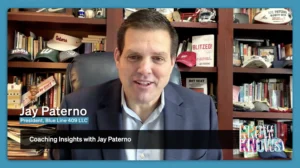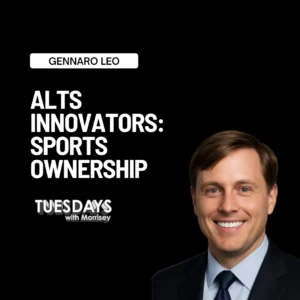What Could Happen if Film Studios Owned Their Own Theaters: Ratified
On this episode of Ratified, MarketScale’s podcast on the intersection of policy and business, Voice of B2B Daniel Litwin takes a trip back in time – and to the modern-day legal battleground emerging under President Trump’s DOJ – to examine the 1948 Paramount Decision.
To get you up to speed, that 1948 decision by the U.S. Supreme Court came about in a time when block-cooking, blind-buying and circuit dealing were rampant in the film industry. Litwin goes into exactly what those terms mean, but the gist is this – vertical integration in the film industry was dominant, and major companies created monopolies and stifled competition.
An initial suit in 1938 bloomed into the 1948 decision, which saw the Supreme Court rule that film studios could no longer legally own their own theaters. This led to a boom for independent theaters and creators.
Now, the Department of Justice is looking to reverse course on the decades-old ruling.
Essentially, the argument boils down to this – the Antitrust Division of the DOJ believes these restrictions are no longer relevant in a media landscape that has so drastically shifted away from the theater experience of even a decade or two ago.
To examine the implications of a potential rollback, Litwin welcomed the University of Southern California’s Dr. John Connor to get some historical perspective, highlight economic structures in modern filmmaking and distribution, where independent media would go in the wake of a reversal, and more.
UCLA School of Theater, Film and Television’s Tom Nunan, former president of NBC Studios, among a laundry list of high-profile roles in the film industry, also joined the program to bring insights from the perspective of the country’s largest studios.
Listen to all episodes of Ratified.
For the latest news, videos, and podcasts in the Sports & Entertainment Industry, be sure to subscribe to our industry publication.
Follow us on social media for the latest updates in B2B!
Twitter – @MarketScale
Facebook – facebook.com/marketscale
LinkedIn – linkedin.com/company/marketscale








